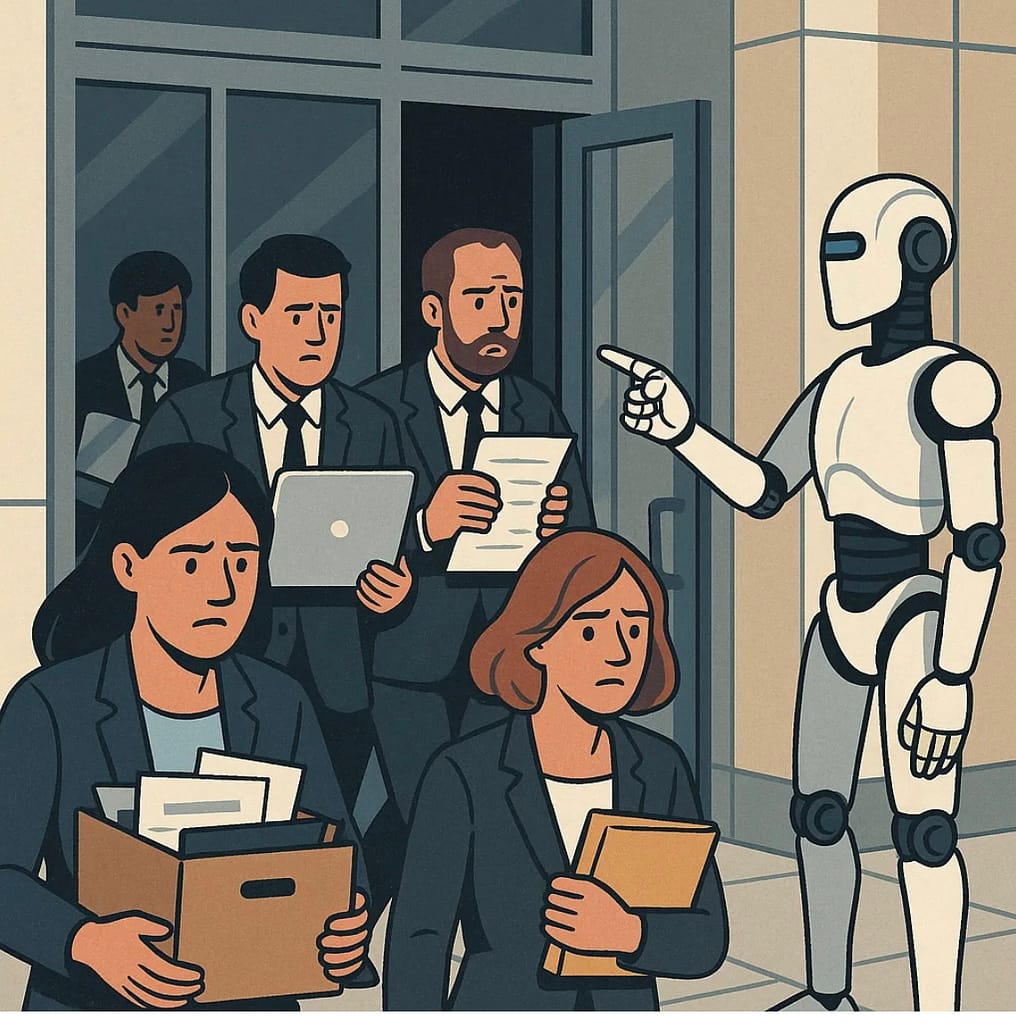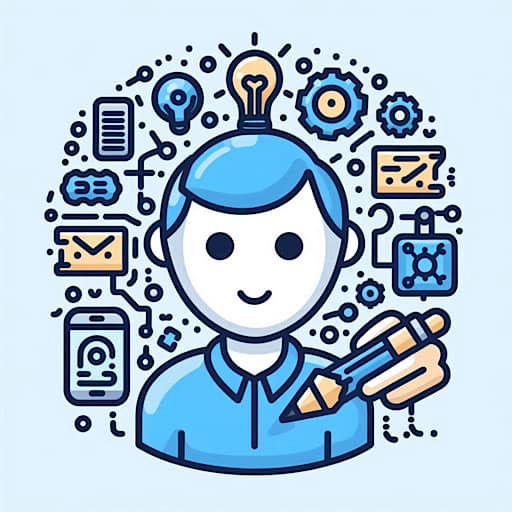
How much of a threat is AI to white collar jobs?
There’s a cartoon doing the rounds that says it all in one frame.
A humanoid robot stands in the lobby of what looks like a modern office building pointing to a procession of workers, grim-faced and trudging out with their personal effects in cardboard boxes and bringing their laptops with them. Laptops and laptop workers no longer required in this office!
And the caption? “Laptop workers being replaced.”
White collar jobs under threat!
We’re entering what some thinkers are calling, “the twilight of human intellectual supremacy”. According to Tyler Cowen and Avital Balwitin, writing in The Knowledge, humanity is facing “perhaps the most profound identity crisis” in its history. They argue that artificial intelligence is not just automating tasks—it’s actually beginning to out -think us.
Take a minute to let that sink in:
“…artificial intelligence is not just automating tasks – it’s actually beginning to out-think us”.
A mere five years ago, in 2019, GPT-2 could barely finish a coherent sentence. By 2023, GPT-4 was scoring higher than 90% of humans on some of the most rigorous medical and legal exams. Today, the most advanced models outperform leading economists at solving economic problems. And many AI researchers believe we’ll be outclassed across almost every cognitive domain before 2030.
So… what happens then?
Rethinking Work, Worth and Purpose
The first obvious shift is in what kinds of jobs will matter. White-collar, laptop-based roles—the kind so many of us have relied on—may lose much of their value. In contrast, manual and blue-collar work could become more important, particularly in energy production, infrastructure, and maintenance—industries needed to fuel AI’s vast computing appetite.
Some new roles will emerge—especially for those who can wield AI with precision and creativity. These “agentic” individuals (to use the fashionable term) may find themselves with power and influence rivalling historical giants like Napoleon or Roosevelt. But for billions of others, work might no longer provide the meaning and purpose it once did.
Location Location
Cowen and Balwitin suggest that where you live might soon be more defining than what you do. High-tech hubs like Abu Dhabi or Singapore could become either glittering utopias or ultra-optimised dystopias. In contrast, places less touched by AI—Mexico, Zambia, or other low-tech regions—might start to seem more human, more real, more… exotic.
It’s a wild thought. And not entirely far-fetched
AI Will Transform the World – But So Did Fire
There’s no doubt that powerful AI will reshape society. But this isn’t the first seismic shift we’ve faced. The world has transformed many times before. The printing press, electricity, the internet—each upended the rules. Few of us, in hindsight, would want to return to the pre-transformation world.
That said, the emotional and social consequences of the AI era are still unfolding. This isn’t just about jobs. It’s about identity, community, and meaning.
And the big question remains: In an age where machines may outthink us—what’s left for our species to do?
Sources and Further Reading
Cowen, Tyler and Balwitin, Avital. ‘The Twilight of Human Intellectual Supremacy.’ This post was inspired by their article in The Knowledge https://www.theknowledge.com/p/the-twilight-of-human-intellectual-supremacy?utm_source=chatgpt.com
OpenAI. GPT-4 Technical Report (2023). https://openai.com/research/gpt-4
Stanford HAI. AI Index Report 2024. https://aiindex.stanford.edu/report/
Cowen, Tyler. Marginal Revolution blog. https://marginalrevolution.com
